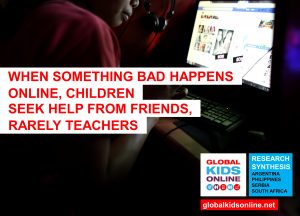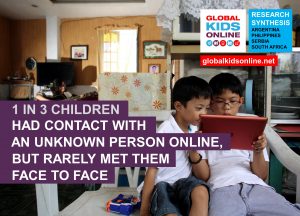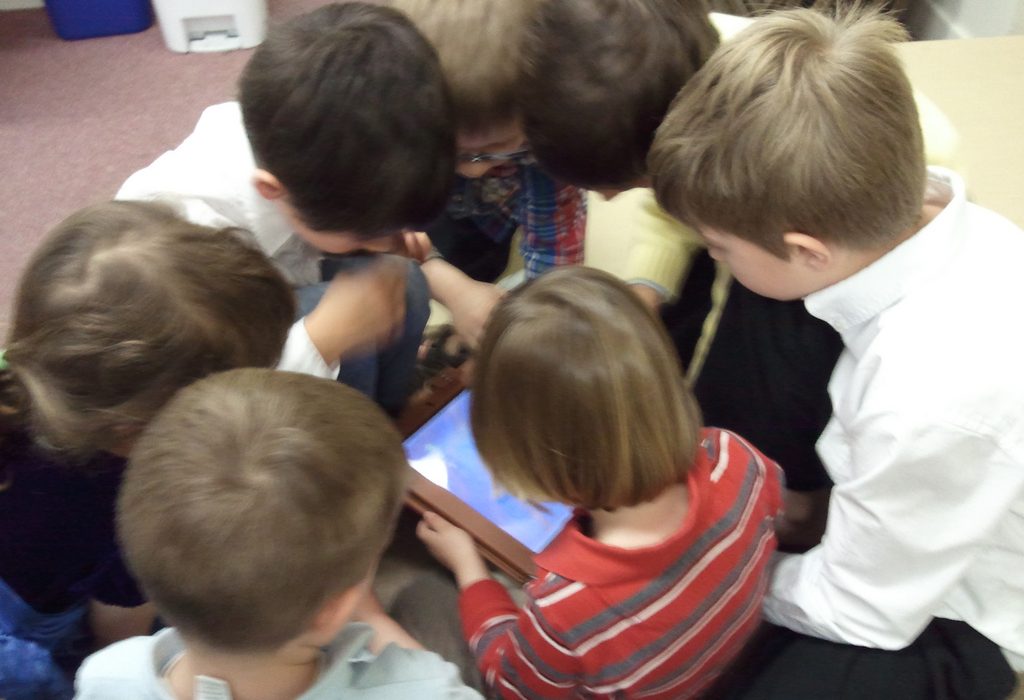 Our research found that the proportion of children who report feeling upset about something that happened online varied significantly between the countries we studied (Argentina, Serbia, South Africa and the Philippines). Between a fifth of children in South Africa and three-quarters in Argentina report feeling upset about an online incident, with older children reporting more incidents.
Our research found that the proportion of children who report feeling upset about something that happened online varied significantly between the countries we studied (Argentina, Serbia, South Africa and the Philippines). Between a fifth of children in South Africa and three-quarters in Argentina report feeling upset about an online incident, with older children reporting more incidents.
The qualitative research and an open-ended survey question allowed children to describe the concerns about what bothers them online in their own words. Children mentioned a wide range of issues, including internet scams, pop-up adverts that were pornographic, hurtful behaviour, unpleasant or scary news or pictures, discrimination, harassment (including sexual harassment by strangers) and people sharing too much personal information online.
When something upsetting happens, children are most likely to seek support from a friend, and rarely from a teacher.
- In all four countries the most common source of support is friends – between a third and two-thirds of children spoke to a friend the last time something upsetting happened online. The next most popular source of support is parents, followed by siblings. Few children confided in a teacher, and the follow-up survey questions suggested that few children had received e-safety or digital literacy teaching at school; more had received some guidance on internet use from their parents.
- The qualitative research suggests that children make a judgement about whether the parent needs to get involved or whether the problem can be handled by talking to peers. In a sense, children mediate their own negative experiences, figuring out the best coping mechanism based on the situation as they see it.
 Countries vary in the amount of risks encountered and the balance with online opportunities:
Countries vary in the amount of risks encountered and the balance with online opportunities:
- As many as one third of children in Serbia reported being treated in a hurtful way by their peers, online or offline, though in South Africa and the Philippines only a fifth said this had happened to them. Older children are more likely to report experiencing such behaviour. Smaller proportions also report treating others in hurtful ways.
- The proportion of children who have seen sexual images during the past year ranges from about a third of all children in the Philippines to slightly over two-thirds in Argentina and Serbia. Boys and older teenagers are more likely to have seen such images. While online sources such as pop-ups and social networking sites account for a significant amount of this exposure, ‘traditional’ sources such as television or film are also sources of potentially pornographic exposure.
- Fewer than one in twenty children in the Philippines and South Africa reported some kind of online sexual solicitation – being asked for sexual information, to talk about sex or to do something sexual, although even these low numbers merit serious attention.
A child-rights approach seeks to consider the balance between risks and opportunities in the round. In this respect, the findings show large differences across countries. In Serbia, South Africa and the Philippines, most children considered the internet beneficial, although around a third had experienced something upsetting online in the past year. In Argentina, most children reported experiencing a problem online, matching the proportion who found the internet beneficial. It is indeed possible that there are more problems for children online in Argentina, but it is also possible that the internet is more familiar to Argentinian children and they encounter more risks.
You can download the presentation of our findings.
The key comparative findings are available in the Research Synthesis report and are summarised in the Executive summary.
Highlights are also presented in our recent posts for Parenting for Digital Future, the Conversation, and UNICEF Office of Research – Innocenti
You can sign up to receive the latest research news from Global Kids Online by email. Please forward this message to anyone you think may be interested.
Post author: Mariya Stoilova








